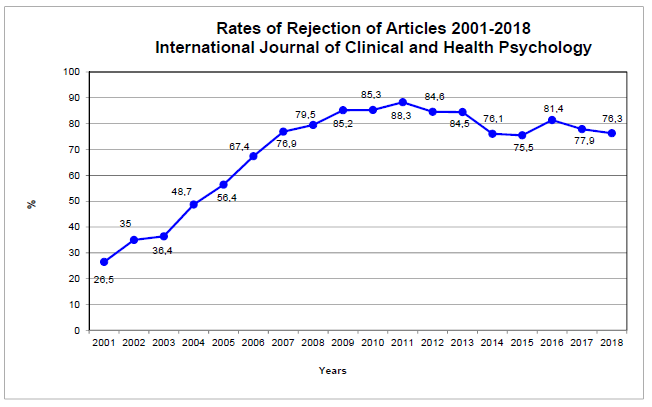Call for papers: Clinical Health Psychology Research in Cancer: Psychological Adaptation, Biobehavioral Processes, and Health Outcomes
We are pleased to announce a call for papers for a special issue on “Clinical Health Psychology Research in Cancer: Psychological Adaptation, Biobehavioral Processes, and Health Outcomes”. This special issue aims to bring together cutting-edge research that explores the complex interplay between psychological, biobehavioral, and health-related factors in cancer care and survivorship.
Scope of the Special Issue:
Cancer presents significant psychological and physiological challenges for patients, families, and healthcare providers. This special issue will focus on research that examines:
1. Psychological Adaptation to Cancer: Studies that explore how patients cope with the emotional, interpersonal and cognitive demands of cancer, including factors that enhance resilience or exacerbate distress during diagnosis, treatment, and survivorship.
2. Biobehavioral Processes in Cancer: Research that highlights the physiological and behavioral mechanisms linking psychological and social factors with cancer progression, treatment response, and recovery, such as the roles of stress-related neuroendocrine signaling, inflammation, and immune functioning.
3. Psychological Interventions: Contributions that investigate the efficacy, mediators and moderators of psychological interventions in improving physical health outcomes, quality of life, and emotional well-being in cancer patients, including interventions like cognitive-behavioral therapy, mindfulness, and health promoting lifestyle strategies such as physical exercise and diet.
4. We are interested in contributions that employ innovative technological approaches—such as websites, telehealth, mobile health (mHealth) applications, wearable sensors, virtual reality (VR), and artificial intelligence (AI)-enhanced platforms for psychological assessments, interventions, and monitoring of biobehavioral processes.
Topics of Interest Include but Are Not Limited to:
- Emotional, interpersonal and cognitive responses to cancer diagnosis and treatment
- Psychological interventions for cancer-related distress, anxiety, or depression during treatment
- Biobehavioral pathways linking stress and cancer outcomes
- Psychosocial factors influencing cancer treatment adherence
- Longitudinal studies on psychological resilience in cancer patients
- Psychological Interventions to optimize cancer survivorship and quality of life
- The role of family and social support in cancer adaptation and outcomes
- Cross-cultural perspectives on psychological adaptation in cancer care and survivorship
- Interventions to modulate health behavior changes relevant to cancer prevention, treatment and survivorship
Guest editors:
Luzia Travado
Champalimaud Foundation, Lisboa, Portugal
Michael Antoni
University of Miami, Florida, United States of America
Joaquim C. Reis
Insight - Piaget Research Center for Ecological Human Development, Piaget Institute, Lisbon, Portugal
Manuscript submission information:
Submission Guidelines:
We invite original empirical research articles, reviews, meta-analyses, and methodology-focused papers. Submissions should offer novel insights into psychological adaptation, biobehavioral mechanisms, or health outcomes in cancer. Manuscript length and formatting should comply with the Journal guidelines. Manuscripts will undergo a rigorous peer-review process.
Submission Deadline: March 31, 2025
Please submit your manuscript through our online submission system Editorial Manager® and select article type name VSI: cancer.
For any queries about the appropriateness of contribution topics, please contact: luzia.travado@fundacaochampalimaud.pt. For other queries, please contact: Yiying.Zhang@elsevier.com.
We look forward to receiving your contributions to this important area of research.
Why publish in this Special Issue?
- Special Issue articles are published together on ScienceDirect, making it incredibly easy for other researchers to discover your work.
- Special content articles are downloaded on ScienceDirect twice as often within the first 24 months than articles published in regular issues.
- Special content articles attract 20% more citations in the first 24 months than articles published in regular issues.
- All articles in this special issue will be reviewed by no fewer than two independent experts to ensure the quality, originality and novelty of the work published.
Learn more about the benefits of publishing in a special issue.
Interested in becoming a guest editor? Discover the benefits of guest editing a special issue and the valuable contribution that you can make to your field.
- Call for papers
- Instructions for authors
- Submit an article
- Ethics in publishing
- Open Access
- Language Editing services
Sleep disorders are highly prevalent, have high comorbidity and high socio-economic costs. Research on the various sleep disorders and factors for their improvement is essential. This monograph includes original research that helps to answer fundamental questions about sleep quality and improvement of sleep disorders. The aim of this monograph is on the one hand to include innovations from sleep research, on the other hand to expand knowledge on psychological and health interventions for the improvement of sleep quality and the treatment of major sleep disorders.
 Submission deadline 30 de January de 2025
Submission deadline 30 de January de 2025 The aging of population is global and brings to the discussion the need to develop, adapt and fine-tune interventions that tackle aged populations regarding their mental/brain health. It is true that both multimorbidity and ageism have inhibited the health actors, professionals, and scientist to give enough attention to older adults’ mental health. In fact, concerns with some of the most prevalent disorders in these development phase – neurocognitive disorders and dementia – have contributed to increase the attention to impact of these conditions in older adults’ well-being and their relatives.
 Submission deadline 1 de February de 2025
Submission deadline 1 de February de 2025 In this special issue, we explore the latest research and the transformative potential of eXtended Reality (XR) in advancing health psychology and well-being. We aim to present the state of the art in Virtual Reality, Augmented Reality, and Mixed Reality applications, taking readers on a journey from theoretical to practical application, where XR innovations offer promising avenues for therapeutic intervention and health promotion.
 Submission deadline 15 de April de 2025
Submission deadline 15 de April de 2025 




